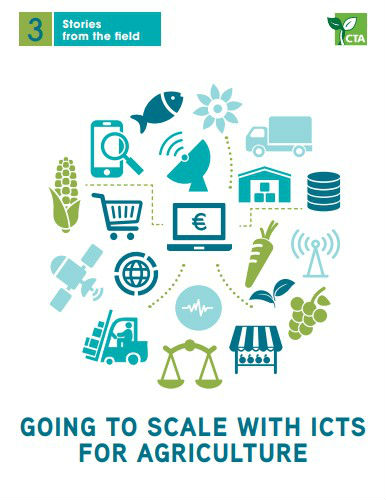 15 April 2017: The huge potential of ICT for agriculture (ICT4Ag), from increasing agricultural yields to helping farmers get a fairer price for their produce, is well documented. Technologies such as SMS applications, mobile banking and satellite data have been used successfully to give agricultural stakeholders access to farm mapping, weather data, marketing tools, financial credit, advice from extension workers, and social networks, among other things. These technological applications are capable of reaching hundreds of millions of smallholder farmers and stakeholders in rural areas, acting as a catalyst for positive change and in achieving the SDGs.
15 April 2017: The huge potential of ICT for agriculture (ICT4Ag), from increasing agricultural yields to helping farmers get a fairer price for their produce, is well documented. Technologies such as SMS applications, mobile banking and satellite data have been used successfully to give agricultural stakeholders access to farm mapping, weather data, marketing tools, financial credit, advice from extension workers, and social networks, among other things. These technological applications are capable of reaching hundreds of millions of smallholder farmers and stakeholders in rural areas, acting as a catalyst for positive change and in achieving the SDGs.
However, limits on their reach include poor internet connectivity in the rural areas of developing nations, high illiteracy rates among smallholder farmers and fishers, and the inability of pilot projects to go to scale due to lack of long-term funding or not having measures for their sustainability built into the programme design.
I recently researched and authored seven case studies on going to scale with ICT4Ag for the Technical Centre for Agricultural and Rural Cooperation (CTA) through Scriptoria Sustainable Development Communications.
You can read the case studies in Going to scale with ICTs for agriculture:
- Burkina Faso: Agripol web platform supports agricultural advocacy in Burkina Faso
- Burkina Faso, Côte D’ivoire and Mali: Using digital data to create a fair-trade ethos for food producers in West and Central Africa
- Ghana: Hand-held technology for surveying farms transforms the lives of Ghana’s farmers
- Ghana: Empowering women farmers in Ghana with access to information
- Sudan: Saving water and quadrupling crop yields in Sudan via an SMS subscription
- Trinidad and Tobago: Supporting stakeholder cooperation with a smartphone app in Trinidad and Tobago’s small-scale fishing industry
- Uganda: Using technology to bring financial services to rural farmers in Uganda.
